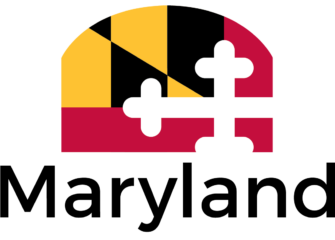
Annapolis, MD – Governor Wes Moore today attended the 15th anniversary celebration of the U.S. Black Chambers, Inc. and national conference. Governor Moore participated in a discussion centered on creating pathways to work, wages, and wealth and supporting minority-owned businesses as a critical means to making Maryland more competitive.
“Eliminating the racial wealth gap is why I decided to run for governor in the first place. At a time when generations of Black Marylanders have been walled off from opportunity, we need to work together to not just undo the harms of the past, but also build an equitable future,” said Gov. Moore. “Maryland is proud to partner with the U.S. Black Chambers and advance our shared mission of growing pathways to Black wealth. Together, we will leave no one behind.”
The U.S. Black Chambers, Inc. provides committed, visionary leadership and advocacy in the realization of economic empowerment. By creating resources and initiatives, the organization supports a network of African American Chambers of Commerce and business organizations in their work of developing and growing Black enterprises. The network includes 145 chambers of commerce and business organizations in 42 states, representing approximately 326,000 Black businesses nationwide.
The Moore-Miller Administration is focused on three key areas to address the racial wealth gap: supporting minority businesses and entrepreneurs, increasing wages, and investing in homeownership.
Since taking office, the administration has advanced more than $1.6 billion in procurement awards to certified minority-owned businesses through the Board of Public Works and appointed the state’s first-ever minority business enterprise ombudsman to support minority businesses in the state. The administration has also directed more than $85 million to support social equity applicants and licensees in Maryland’s burgeoning cannabis industry, in addition to disbursing more than $14 million to support initiatives for communities that have been disproportionately impacted by the War on Drugs.
The administration worked on a bipartisan basis to pass the Fair Wage Act of 2023, which raised the minimum wage to $15 an hour two years ahead of schedule. Approximately 163,000 workers in Maryland immediately saw their wages rise as a result and the increases benefitted 120,000 children across the state. And the governor’s signature ENOUGH Act positions Maryland to be the first state in the nation to leverage partnerships with philanthropy, local governments, unions, and the private sector to meaningfully tackle generational poverty in communities across the state.
The administration also passed the most comprehensive housing package of any Maryland governor in recent history. Through the Housing and Community Development Financing Act, Maryland is able to compete for federal New Market Tax Credits to directly invest in community assets and generate increased community wealth in high poverty neighborhoods—many of which suffered from directed disinvestment due to racial segregation. And through a $10 million investment in the Utilizing Progressive Lending Investments to Finance Transformation program, also known as UPLIFT, critical funding directed toward disinvested communities will help accelerate new construction, structure rehabilitation, homeownership, and wealth building.
To learn more about the U.S. Black Chambers, Inc., visit usblackchambers.org.




